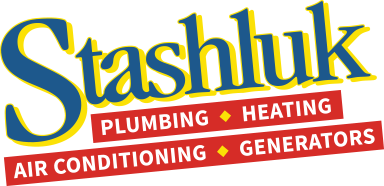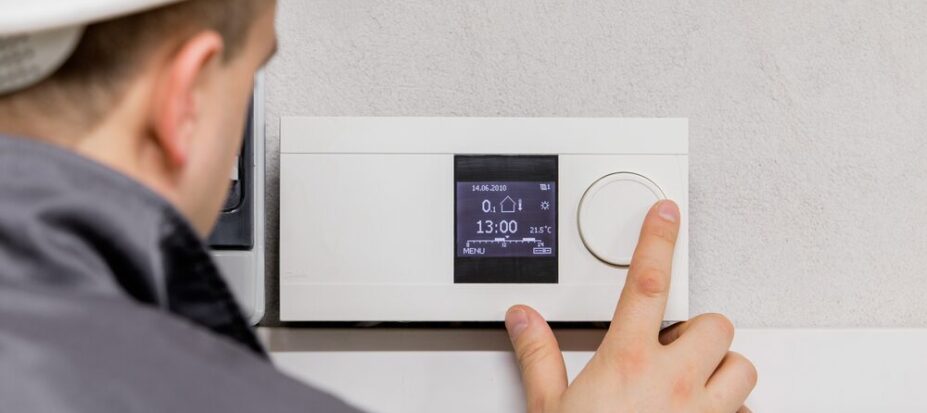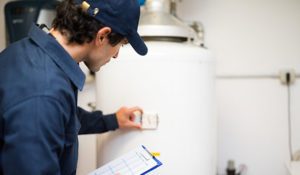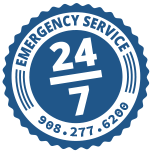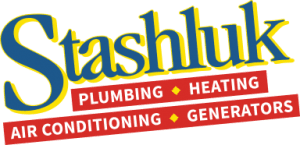Homeowners rely on their heating systems to keep warm as temperatures drop during New Jersey winters. However, issues that prevent your furnace or boiler from working correctly can arise. Understanding some common problems can help you troubleshoot fundamental problems or know when to call an HVAC technician.
Our licensed technicians at Stashluk Plumbing, Heating, Air Conditioning & Generators have over 25 years of experience servicing furnaces and boilers in NJ homes. We’ve seen many heating problems and can quickly diagnose issues to get your system running again.
Below, we’ll cover five frequent heater troubles we encounter and steps you can try yourself before calling a professional. We’ll also answer some commonly asked questions about winter heating issues. Being prepared with this crucial information will help you react appropriately if your heating system suddenly stops keeping your home warm.
Don’t let a malfunctioning furnace leave your New Jersey home cold during this time. Contact E.J. Stashluk & Sons Inc. at 908.277.6200 immediately to schedule expert furnace repair and ongoing maintenance services that keep your family warm and safe all season.

Thermostat Isn’t Accurately Controlling Temperature
An incorrectly calibrated thermostat is one of the most frequent reasons homeowners call about heating concerns. The thermostat likely needs adjustment if your system runs constantly but never reaches the set temperature or fluctuates widely.
First, check that the thermostat is set to “heat” mode. Ensure any smart home apps connected to your thermostat haven’t accidentally changed settings. Adjust it a few degrees higher to trigger the system.
If problems persist, replace the thermostat’s batteries if applicable. Thermostats use little power, and batteries can last 1-2 years but fail. If adjusting settings and replacing batteries doesn’t help, contact an HVAC technician to test and recalibrate the thermostat.
Recalibrating ensures accuracy so your system runs appropriately without overheating or leaving rooms uncomfortably chilly. Our techs can determine if upgrading a newer programmable thermostat is worthwhile to prevent future issues.
Blown Fuse or Tripped Circuit Breaker
If your furnace or boiler suddenly stops operating, check if you have blown fuses or tripped circuit breakers before assuming component failure. Heating systems require high wattages so electrical issues can cause shutdowns.
Locate your electrical panel and check if any switches have flipped to the “off” position. Flip those completely “off” and then back “on.” Also, check your fuse box for burnt-out fuses and replace any blown fuses with new ones of the same amperage.
If fuses blow again or breakers re-trip rapidly, contact an electrician, as a severe underlying electrical issue exists. You may need wiring repairs or upgrades to support your heating system’s demands. Sticking breakers also indicate problems requiring replacement.
Furnace Filter Needs Replacing
It’s easy to overlook something as simple as a dirty filter causing reduced airflow and heating problems. Check your filter every month when running your heating system often. Swap in clean filters when airflow seems diminished, or rooms feel drafty.
Marking your calendar with monthly filter check reminders can prevent issues. Stashluk technicians recommend upgrading standard fiberglass to pleated filters for better particle capture and airflow.
Keep spare filters on hand so it’s simple to replace them. Prompt filter changes improve efficiency, reduce system strain, and may prevent early component failure over time.
Low Fuel Supply
An empty fuel tank can unexpectedly shut down gas or oil-fueled heating system operations. Ensure sufficient propane, heating oil, or natural gas supplies are available through automatic delivery or monitoring tank levels.
Mark calendars to contact fuel suppliers before tanks reach low levels. Watch for any deposits, debris, or moisture in oil tanks that need removal and request tune-ups to improve efficiency. Install safety valves to prevent flooding from leaky tanks.
For propane, inspect portable tanks for dents, rust, bulges, or leaks indicating needed replacement. Make sure connections are tight with no blockages. Also, ask suppliers to add odorants for gas leak detection and invest in carbon monoxide detectors for added household safety, given the risks from fumes.
Faulty Ignition Systems
Gas and oil systems require ignition components to light burners when heat demands exist safely. Pilot lights, igniters, sensors, and control boards work together to start combustion. Failure in any component can lead to shutdowns.
If your system attempts to start but fails to ignite or stays lit, the ignition system likely needs attention. Our technicians troubleshoot ignition components to pinpoint and replace malfunctioning parts. Identifying and addressing small ignition issues promptly reduces risks of severe secondary damage from disruptions in burner lighting.
Frequently Asked Questions About Heaters in NJ Homes:
-
What’s Considered An Emergency Heating Issue Needing Urgent Repair?
Situations when households are left without heat, even temporarily relying on fireplaces or space heaters, warrant emergency service calls. HVAC companies prioritize these calls, so wait times for assistance are usually minimal.
Other less-pressing but still-serious issues include:
-
Gas leaks or powerful odors indicate hazardous situations
-
Repeated ignition failure errors posing fire risks
-
Visible smoke emanating from systems
-
Loud noises or banging from boilers/furnaces signaling impending breakdowns
-
How Often Should My Heating System Receive Maintenance?
Industry experts recommend annual tune-ups by licensed technicians before each heating season begins. Maintenance improves safety, efficiency, longevity, and reliability. Technicians can catch minor issues before they escalate into major repairs or replacements.
-
What Maintenance Do Technicians Perform?
Tasks involve comprehensive system inspections plus component-specific actions like:
-
Replacing filters
-
Inspecting thermostats
-
Testing electrical controls and ignition
-
Calibrating sensors
-
Evaluating airflow
-
Cleaning burners and heat exchangers
-
Checking pipe/duct integrity
-
Monitoring for leaks
-
Clearing debris or soot
-
Lubricating parts
-
When Do I Need To Replace My Entire System?
As components age, required repairs mount, and inefficiencies increase. After 10-15 years, the costs of frequent fixes often outweigh investments in new, warranted, more eco-friendly systems.
Upgrading before systems fail can prevent being left without heat during winter cold spells. Our team performs thorough assessments on-site and discusses budgets, incentives, warranties, and financing to make replacements affordable.
-
What Financing Options Exist For New Systems Or Emergency Repairs?
Many homeowners utilize home equity loans/lines of credit to fund large HVAC investments with tax-deductible interest. Payment plans spreading costs over 6-12 months are also available with approved credit.
Hire A New Jersey HVAC Technician
Be sure to call for furnace help before your family is freezing in your home. At the first sign of cold spots, high energy bills, strange smells, or error codes, phone our team immediately at 908.277.6200. We’ll dispatch our licensed heating experts to diagnose issues when you contact us. We carry replacement parts in our vehicle stock to restore comforting warmth quickly. You can count on us 24/7 for same-day repairs.
